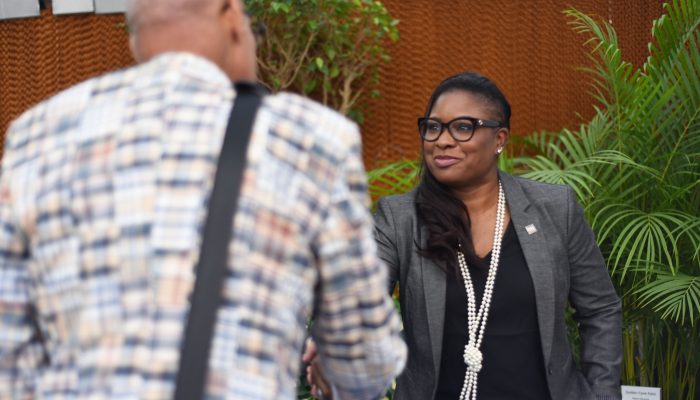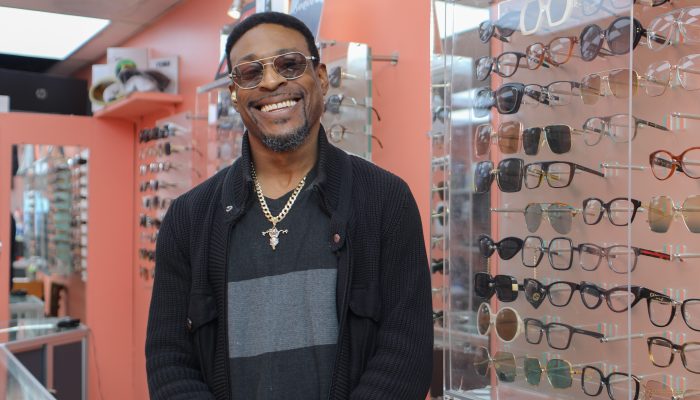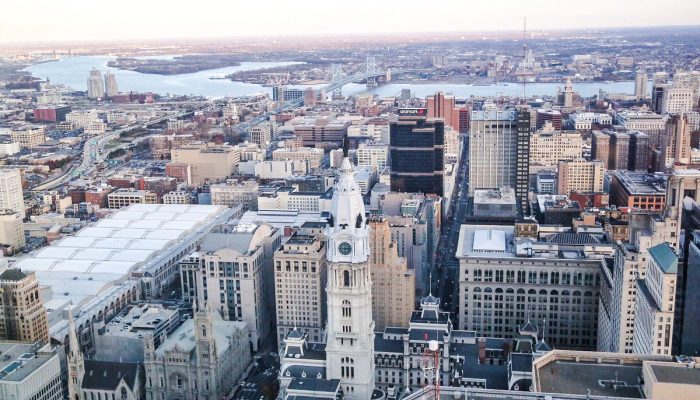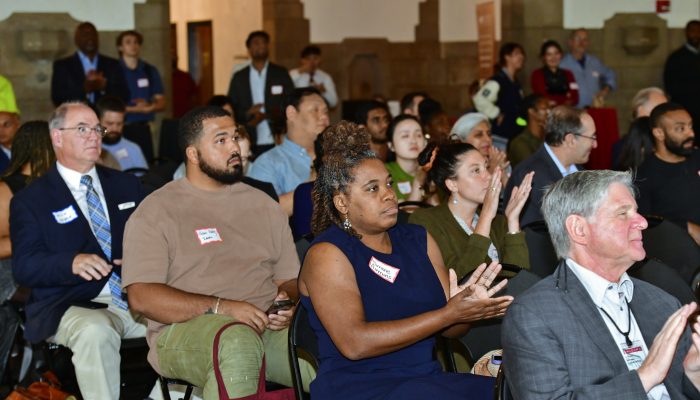We’re committed to closing the opportunity gap experienced by minority-, immigrant-, and women-owned businesses. Here are some of the ways we’re connecting diverse businesses and entrepreneurs to funding and resources that can help them participate in Philadelphia’s growing economy.
Multi-million-dollar Rebuild construction contracts
Rebuild’s historic investment of hundreds of millions of dollars presents an opportunity to support small, diverse businesses. Often, these businesses face barriers that make it difficult for them to work on public works projects.
Rebuild Ready helps small businesses strengthen their operations without adding more staff. We help them work through bonding and insurance requirements, access capital and financing, develop bids, manage cash flow, get technical assistance and back-office support, and connect with the nonprofits managing Rebuild projects. Rebuild is partnering with the Enterprise Center and Surety Bond Associates to provide services for the program.
Businesses can sign up for the program by filling out the Enterprise Center Business Services Application. Be sure to select “Rebuild Ready” at the end of the application.
Our Emerging Vendors Program gets owners on the path to becoming an official minority- or woman-owned business—a valuable designation that can be complicated and time-consuming for small businesses that don’t have resources. The Emerging Vendors Program allows participants to count toward diversity goals on City contracts while providing the business with expert assistance to work toward their permanent certification.
Businesses can sign up for the Emerging Vendors Program through the Office of Economic Opportunity.
Resources and financial support for small businesses and startups
Project NorthStar Conference
We partnered with the nonprofit Black & Brown Founders to host the first Project NorthStar conference in 2018 to encourage participation of diverse individuals in Philadelphia’s innovation economy.
Many startup founders at NorthStar shared their struggles to secure initial funding which usually comes from “friends and family” networks. This financing is needed before they can even seek seed money. For entrepreneurs who come from economically distressed backgrounds, those networks are less likely to have the ability to help launch a business.
StartupPHL Venture Program
We launched the StartupPHL Venture Program to help close the gap we discovered at NorthStar (see above).
Our new grant program provides funding for technology startups that may not have access to traditional forms of capital and funding networks. We designed it specifically to support entrepreneurs from socially or economically disadvantaged backgrounds.
Joint initiative with PIDC to expand entrepreneurial supports
The City and PIDC, Philadelphia’s public-private economic development corporation, just announced a new $5 million investment to expand resources for people of color, women, and immigrants who want to run a business. The initiative has three components:
- New loan capital for United Bank of Philadelphia, the city’s only African American-owned bank, to support minority- and women-owned businesses
- A fund to support investments in existing businesses owned by people of color, women, and immigrants
- Expanded services to support the growth of these businesses, including workshops, peer mentoring, and one-on-one support
Commercial corridor investments
A good-looking store attracts customers. We’ve helped hundreds of businesses spruce up their exteriors through the Storefront Improvement Program, which reimburses up to 50 percent of eligible improvement costs. Storefront upgrades may include new signage, exterior paint, masonry work, lighting, new doors and windows, and more.
Owners who want to expand their retail, food, or creative arts business to a commercial corridor can take advantage of our InStore Forgivable Loan Program, which provides loans ranging from $15,000 to $50,000. If the business remains open and operating at the location for five years, the loan is forgiven and the business pays nothing.
Immigrant Business Week and MED Week
Started in 2017, the annual Immigrant Business Week celebrates Philadelphia’s immigrant entrepreneurs, while Minority Enterprise Development (MED) Week highlights our diverse minority businesses.
In addition to recognizing the importance of minority- and immigrant-owned organizations, both of these weeks connect businesses to educational workshops, interactive panel discussions, contract opportunities, one-on-one coaching networking, and other resources that help them thrive.
Technical assistance
The City provides funding to select nonprofit organizations that help businesses. Funding provided through the Business Technical Assistance Program (BTAP) helps organizations equip businesses with skills training, lending, English language assistance, and legal aid. Current BTAP providers include:
- Entrepreneur Works.
- Finata.
- SCORE Philadelphia.
- The Enterprise Center.
- Welcoming Center for New Pennsylvanians.
- Women’s Business Development Center.
- Women’s Opportunities Resource Center (WORC).
Registry for minority, women, and disabled-owned businesses
The City of Philadelphia purchases products and services from hundreds of businesses every year. To ensure diversity, we aim to fulfill 35 percent of all contracts through minority, women, or disabled-owned enterprises (M/W/DSBEs). To ensure this, the Office of Economic Opportunity manages a registry of certified M/W/DSBEs. This gives diverse businesses preference in the City’s contracting processes. Businesses can register, and anyone looking to work with a minority, woman, or disabled-owned enterprise can search the registry.
Changes in how we award contracts
Beginning in fiscal year 2020, the City will require more robust scoring criteria for our requests for proposals (RFPs). In addition to a company’s experience, price, and work quality, we also will weight new factors:
- Is the company locally owned?
- Is the firm a disadvantaged business enterprise (DBE)? This means the company is owned and operated by people who historically have been left behind economically and socially.
City Council is working to advance the Local Business Purchasing Initiative (LBPI) so that more City contract money stays with Philly-based companies.
The LBPI would increase the maximum contract amount, from $34,000 to $100,000, if awarded to a local business; it also increases the contract amount for non-local businesses from $34,000 to $75,000. This initiative, if passed as a ballot measure, will simplify the contracting process for local businesses.




